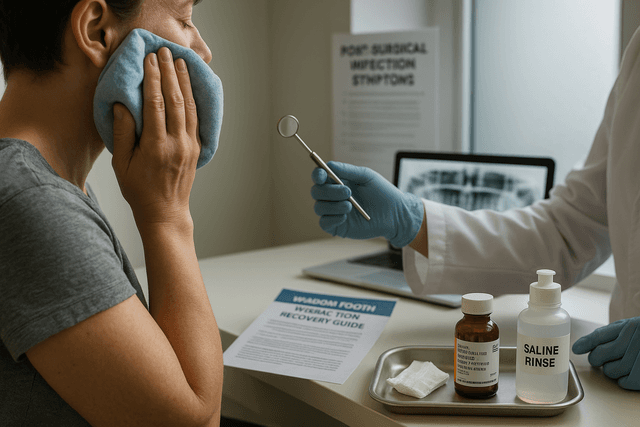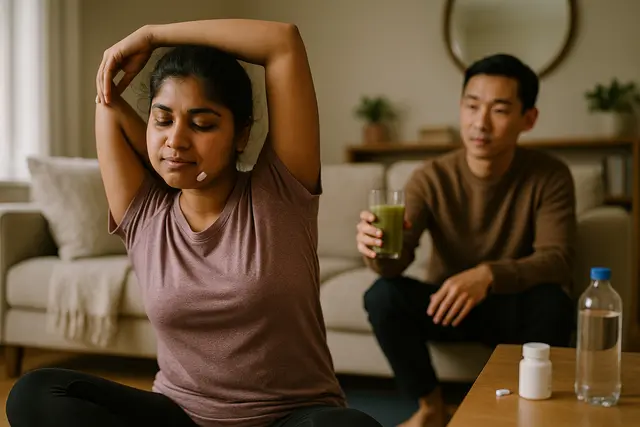Specialized Procedures
Do I Need a Driver for a Root Canal or Can I Go Alone?
If you’ve got a root canal on the calendar, one of the first things you might be wondering is: Do I need someone to drive me, or can I just go alone? It’s a common question, and the answer depends on a few key details, like what kind of anesthesia you’re getting and how your body typically reacts to dental procedures.
5 min read
May 28, 2025

So, your dentist just broke the news: you need a root canal. Maybe you panicked a little. Maybe you Googled it in the parking lot. Maybe, just maybe, you started wondering if this means you’ll have to rope in a friend, partner, or that one cousin who still owes you a favor to drive you home. It’s a fair question, and one we get all the time: Do I need a driver for a root canal, or can I go alone?
Here’s the good news: most of the time, yes, you can go solo. But, and it’s an important but, there are a few crucial factors that could change the answer. Let’s walk through everything you need to know so you’re not left scrambling (or worse, calling a rideshare with a numb face).
Root Canal Basics: What’s Actually Happening in There?
A root canal is a dental procedure where your dentist or endodontist removes the inflamed or infected pulp from inside your tooth. This usually happens when decay, trauma, or a deep crack has made its way into the nerve chamber. Think of it as an eviction notice for bad bacteria.
Dentists use local anesthesia to keep you comfortable, which means they’ll numb just the area around the affected tooth. No general anesthesia unless there’s a special circumstance, like extreme anxiety or a complex medical condition that requires it. For most patients, the root canal procedure is straightforward and similar to getting a filling (just longer and with better storytelling potential later).
Is It Safe to Drive After a Root Canal?
Now for the million-dollar question: are you safe to drive after the root canal? The answer depends on what kind of anesthesia or sedation is used during the root canal.
If your root canal treatment involves only local anesthesia, which is typically the case, you’re almost always able to drive. The local anesthetic does not last long and doesn’t affect your brain or reflexes. So unless your mouth is too numb to whistle a tune, you’re good to go. However, if your dentist uses any form of sedation, even mild nitrous oxide (laughing gas), then no, you should not drive immediately. Sedation can cause drowsiness, blur your judgment, and distract you from the road.
So, if sedation is part of the plan, someone needs to drive you home. Even if you feel fine after, your driving ability might still be off. Play it safe, no heroics behind the wheel.
What About Pain or Discomfort After the Procedure?
Let’s say you’re getting a root canal and planning to drive yourself. What should you expect once the numbness wears off?
After the local anesthetic fades, you might feel some pain and discomfort. The treated tooth and surrounding area can be sore for a few hours after the procedure. That’s completely normal. Over-the-counter pain medications like ibuprofen usually handle it well. But if you have a low pain tolerance or if you’re particularly anxious, consider getting someone to drive you home, just in case. It’s also wise to avoid biting or chewing on the tooth until your dentist places a permanent restoration.
Root Canal Therapy and Driving Home
Let’s be real: the idea of driving home after root canal therapy might sound a little intimidating. Your mouth should remain numb for a few hours after the procedure. This might feel weird, droopy lip, lopsided smile, maybe a little drool, but it’s not dangerous. You’re still physically able to drive yourself home. Just avoid snacks or drinks that could make a mess on the ride back.
But if your mouth or jaw is sore, or if the location of the tooth made the procedure trickier (say, a molar in the back), you might prefer having someone drive you home just to be more comfortable.
What Happens Immediately After Your Root Canal?
Immediately after your root canal, your dentist may place a temporary filling. It’s meant to seal the space until a permanent restoration (like a crown) can be placed. While it does the job, it’s not invincible, so you’ll need to take it easy. Don’t chew on that side of your mouth, and follow any post-operative instructions from your dental team.
Most people feel fine enough to return to work or carry on with their day, especially if they’ve responded well to local anesthesia. Just keep in mind: if you’re experiencing pain or taking medication that could cause drowsiness, driving might not be your best bet.
When You Do Need Someone to Drive You
There are a few situations when having someone drive you home isn’t just a nice gesture, it’s necessary.
You received sedation or general anesthesia.
You’re extremely anxious and took anti-anxiety medication before the procedure.
You’re experiencing pain or light-headedness following treatment.
You just want to avoid the stress of driving post-procedure (and hey, that’s fair).
In these cases, bring a trusted individual to drive you home or arrange for someone to drive you. Even better, have them keep you company in the waiting room if you’re nervous. Emotional support and a ride home? Win-win.
Consult with Your Dentist Before a Root Canal
Before your root canal appointment, consult with your dentist about the type of anesthesia or sedation you’ll be receiving. Ask questions like: Will I be under general anesthesia? Will nitrous oxide be used? How will I feel immediately after the procedure? This will help you decide if you’ll need someone to drive you or if you’re able to drive yourself home safely.
Also, talk about your post-procedure pain plan. If you’re going to need ibuprofen or stronger medication, factor that into your driving decisions. Some medications can distract you from the road or impair judgment, even mildly.
Following Root Canal Treatment
In the days after the procedure, your treated tooth may still feel a little sensitive, especially when chewing. That’s why your dentist may recommend a permanent restoration like a crown to protect the tooth and restore full function. Follow their instructions closely and report any lingering pain or swelling.
If you’ve been taking it easy and listening to your dental team’s post-operative advice, you’ll likely recover smoothly. Just remember that while you may be able to drive immediately after your root canal, there’s no harm in planning ahead and having someone drive you, especially if it makes the whole thing feel less stressful.
Final Word
So, do you need someone to drive you home after a root canal? Not always. If you’re only getting local anesthesia and you feel fine, it’s safe to drive. But if sedation is involved, or if you just prefer a more relaxed, supported ride, bring someone along. It never hurts to have a co-pilot, especially one who’s good at handing you ibuprofen or celebrating your bravery with a milkshake on the way home.
Can I Drive Myself Home After a Root Canal?
Yes, you can usually drive yourself home after a root canal if only local anesthesia is used. Local numbing affects the mouth, not your reflexes or mental alertness. However, if any sedation is used, like nitrous oxide or oral sedatives, you’ll need someone to drive you, as those can impair your ability to drive safely.
When Would I Need Someone to Drive Me After a Root Canal?
You’ll need a driver if your procedure involves sedation or general anesthesia. Also, if you’ve taken anti-anxiety medication beforehand or feel light-headed or in pain afterward, it’s best to have someone else behind the wheel. Your safety and comfort should always come first.
Will I Be in Too Much Pain to Drive After a Root Canal?
Most patients feel mild discomfort or soreness once the numbing wears off, but it's usually manageable with over-the-counter pain relievers. If you're sensitive to pain or worried about post-procedure side effects, arranging a ride home may help you feel more at ease.
Should I Take Time Off Work After a Root Canal?
Not necessarily. Many people return to work the same day, especially if the procedure was straightforward and done under local anesthesia. However, if you’re feeling sore, tired, or on medications that cause drowsiness, it’s smart to rest and take it easy.
Read Next
Related Posts

Specialized Procedures
Infected Wisdom Tooth Symptoms After Being Removed
Getting your wisdom teeth removed is a common dental procedure, but the recovery process isn’t always smooth. While some discomfort is expected, certain symptoms may point to something more serious, like an infection. Recognizing these signs early can make all the difference in protecting your health and ensuring proper healing.
5 min read
Aug 07, 2025

Specialized Procedures
What Can I Drink 3 Days After Tooth Extraction? Best and Worst Options
Having a tooth pulled can leave you with more questions than answers, especially when it comes to what’s safe to drink during recovery. Three days in, you’re likely past the worst, but your choices still matter. The right beverages can support healing, while the wrong ones can cause setbacks like dry socket or irritation.
6 min read
Aug 04, 2025

Specialized Procedures
Wisdom Teeth Removal Exercise: Dos and Don’ts for Faster Healing
Getting back to your workout routine after wisdom teeth removal can be tricky. While you might feel eager to move, knowing when and how to safely exercise is key to avoiding complications like bleeding or dry socket. This guide breaks down what’s safe, what’s not, and how to support your recovery every step of the way.
5 min read
Aug 04, 2025
Don’t have time to research every dentist around you?
See why 30k+ patients trusted us